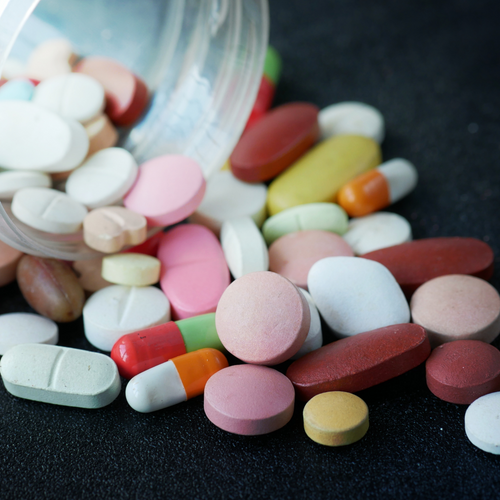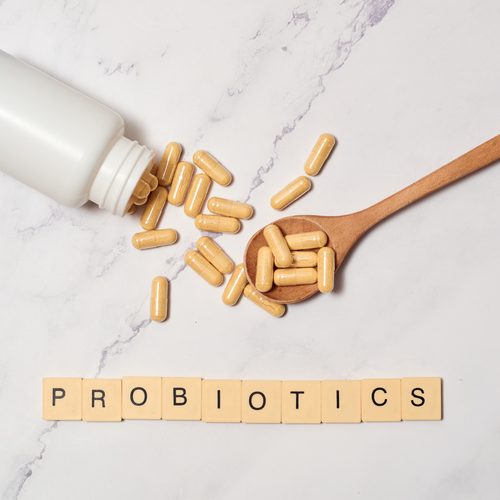Menopause is a stressful and inevitable time that all women dread.
What is menopause?
The female reproductive cycle is a period that extends from puberty to menopause, including the fertile period. Menopause is marked by the definitive cessation of menstruation (or periods ) for more than a year and generally occurs between the ages of 45 and 55. Despite the fact that this phenomenon is natural, it is very feared and especially punctuated by both hormonal and physiological upheavals.
This is because the ovaries no longer secrete the hormones that regulate the menstrual cycle, namely estrogen and progesterone, preventing ovulation each month. This hormonal upheaval can cause symptoms such as the infamous hot flashes, insomnia, sudden weight gain , chronic fatigue , and irritability.
Why do we have swollen bellies during menopause?
Hormonal upheaval
A swollen belly during menopause is primarily a matter of hormones. Estrogen, a very important hormone in women, drops sharply during menopause. This hormonal upheaval can lead to a change in fat distribution. During the fertile period, fat tends to be distributed around the hips, thighs, and buttocks. However, after menopause, fat is generally stored around the abdomen. In addition, this hormonal upheaval can also affect bowel movements and cause constipation , bloating , and flatulence.
Water retention
One of the primary causes of a bloated belly during menopause is water retention in the abdomen. Water retention refers to the accumulation of fluid in the space between cells when the body absorbs more water than it excretes. This can lead to a bloated belly and lower limbs, and a feeling of heaviness. However, this phenomenon does not necessarily imply a gain in body fat.
But how can this be explained? The drop in estrogen levels weakens the filtration capacity of the lymphatic system and increases the permeability of the capillaries, thus leading to the formation of edema.
Slowing of metabolism
A bloated belly during menopause is usually multifactorial and may be caused by a slowdown in basal metabolic rate. Basal metabolic rate, or resting metabolism, is the minimum daily energy expenditure required for the body to survive.
During menopause, muscle mass decreases in favor of fat mass. Due to the slowing of the basal metabolic rate, the body burns fat less efficiently and our caloric needs decrease. Therefore, it is important to readjust your diet and engage in regular physical activity to avoid storing fat.
What solutions are there for having a less bloated stomach during menopause?
Limit salt intake
Salt can be a real enemy. Excessive salt consumption can lead to water retention, which makes you feel bloated and your stomach look bigger. To limit this, try reducing your salt intake by avoiding processed foods and cooking at home with herbs and spices to enhance the flavor.
Opt for anti-bloating foods
To prevent bloating and avoid water retention, there are foods that aid digestion and reduce hot flashes:
- Aromatic herbs (basil, oregano, chives): as a seasoning, as an infusion after meals or as an essential oil for a stomach massage.
- Water : favor water rich in bicarbonates which prevent water retention.
- Dried fruits (hazelnuts, almonds, walnuts): enhance your salads and effectively combat constipation thanks to their richness in fiber .
- Kefir : Drinking a glass on an empty stomach in the morning allows you to provide probiotics to your intestinal microbiota and therefore improve digestion and maintain.
Practice regular physical activity
To combat weight gain and bloating, there's nothing like physical activity! Indeed, sport has a thousand and one benefits for our body, particularly for our digestive system . During physical activity, the increase in heart rate allows for a better supply of blood, and therefore oxygen, to the intestinal muscles.
Thus, regular exercise stimulates intestinal peristalsis, characterized by the set of muscle contractions that facilitate the movement of food through the digestive system. Indeed, the digestive stroll after a large meal is not a myth; it actually facilitates digestion.
Increase your potassium intake
A diet too rich in salt and meat can cause potassium deficiencies and promote water retention. Potassium is a mineral known for effectively relieving bloating, swollen stomachs, and digestive problems. Indeed, it maintains a good electrolyte balance and regulates the acid-base balance . To reduce belly fat during menopause, you can rely on these foods rich in potassium: lentils (810 mg per 100g), dried dates (790 mg per 100g), prunes (732 mg per 100g), almonds (705 mg per 100g), spinach (662 mg per 100g), avocado (650 mg per 100g), chestnuts (600 mg per 100g), mushrooms (520 mg per 100g), walnuts (450 mg per 100g), apricots (440 mg per 100g).






















